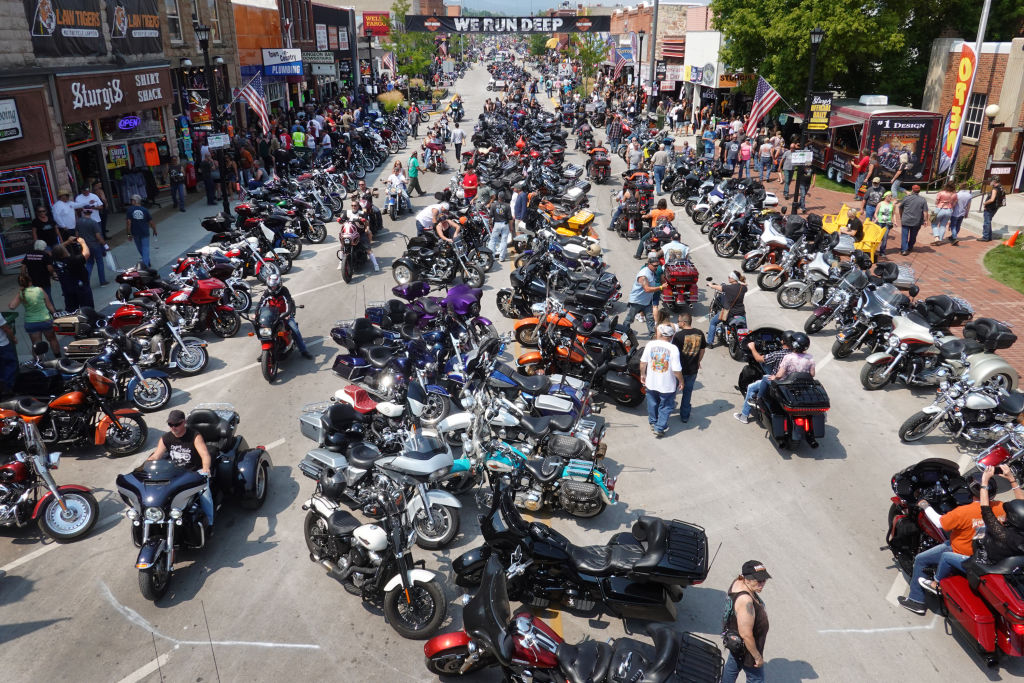
Makenzie Huber, South Dakota Searchlight
State health officials are unable to pinpoint the cause of an unusual string of suspected overdose cases — including two deaths — associated with the Sturgis Motorcycle Rally.
At least 12 cases with similarly mysterious symptoms were reported to the state, with six of the patients requiring intubation.
State Public Health Laboratory Director Tim Southern told the Opioid Abuse Advisory Committee at its August meeting that although the state lab performed comprehensive tests on blood from two patients, including one who died, the lab didn’t find a substance connecting the cases.
“Unfortunately we weren’t able to discover the culprit behind these very unusual clinical cases and overdoses,” Southern said. “Fortunately, these strange occurrences did end when the rally ended.”
The lab can identify six main classes of drugs through blood toxicology tests:
- THC, which is found in cannabis.
- Amine, or amphetamine, a stimulant found in meth.
- Benzo, or benzodiazepines, a depressant found in Valium or Xanax.
- Opioid, a depressant found in fentanyl, heroin or prescription opioids, such as morphine or hydrocodone.
- Barb, or barbiturates, which are depressants.
- Cocaine, which is a stimulant.
The lab can also identify some other drugs through blood toxicology, such as xylazine, which was confirmed in South Dakota last year.
The first reported case of mysterious, overdose-like symptoms at the Sturgis rally happened around July 28, Southern said, and the last one was Aug. 7. The state received reports of patients with shallow breathing, seizures, hallucinations and some cardiac arrests.
Southern said some patients required multiple doses of sedatives, because it was “very, very difficult” to control the patients while they were transported to an emergency room.
The Health Department did not disclose identifying information about the two people who died. Because state officials found no single, linked cause for the medical events experienced by the two patients, the state could not corroborate that the cases were caused by overdoses.
South Dakota Department of Health Secretary Melissa Magstadt said the episode serves as a warning ahead of next year’s rally to prepare for and report cases. She said her department wasn’t advised of cases as they were happening, only after it was “too late.”
The two deaths linked to the overdose-like symptoms came in addition to at least 12 people who died in motorcycle crashes in South Dakota during the rally or in the days just before or after the official rally dates, according to information from the Highway Patrol. The state Department of Health does not track deaths specific to the rally.
The Highway Patrol also reported 155 arrests for driving under the influence in western South Dakota during the rally, 444 drug arrests, 54 non-injury traffic accidents and 35 injury accidents.
Tax collections attributed to the rally were $1.4 million, which was down 3% from last year, according to estimates by the state Department of Revenue.
